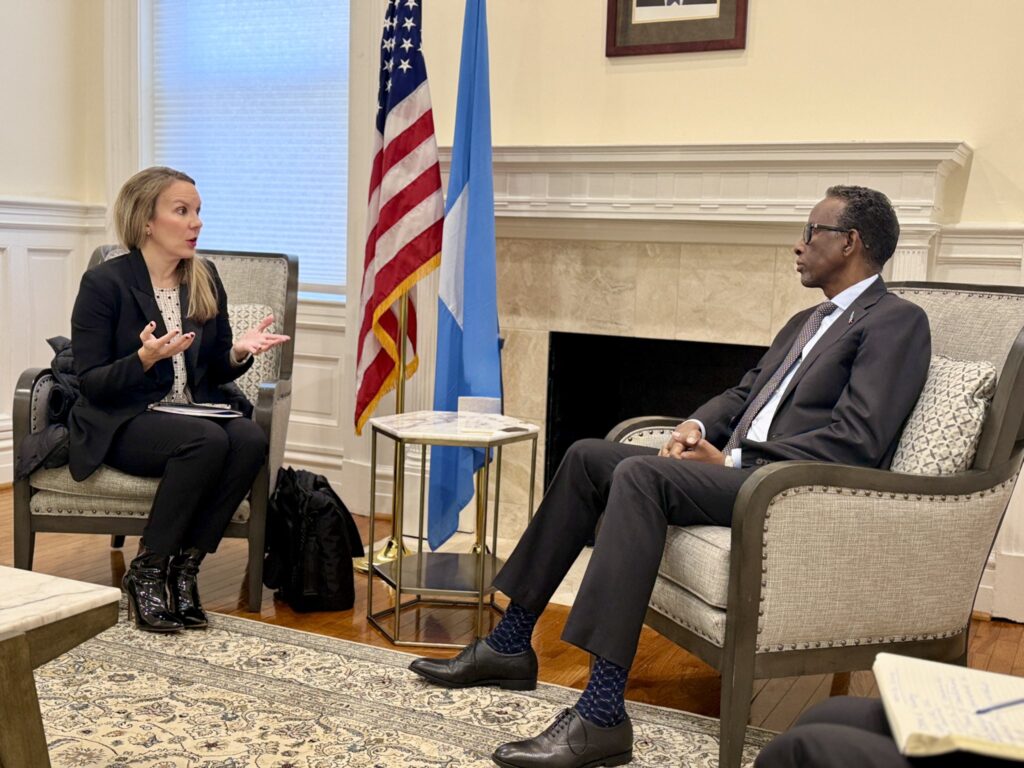The sun was setting over Mogadishu, casting a golden glow over the Indian Ocean as President Hassan Sheikh Mohamud sat in his office, deep in thought. On his desk lay a classified report from the Ministry of Foreign Affairs—a warning that the Trump administration was considering recognizing Somaliland’s independence (Reuters, 2024). Such a move could send shockwaves through the Horn of Africa, fracturing Somalia’s territorial unity and setting a dangerous precedent for other secessionist movements across the continent.
The stakes were high, and Somalia needed a countermeasure—something bold, innovative, and strategically sound. That’s when the idea emerged: SpaceX. If Somalia could bring Elon Musk’s revolutionary satellite internet service, Starlink, into the country, it could transform the nation’s technological landscape while simultaneously strengthening its sovereignty (Radio Dalsan, 2024). The government’s decision was clear: it would invite Musk and SpaceX to invest in Somalia.

The Somaliland Factor
Somaliland had been operating as a self-declared republic since 1991, boasting its own government, military, and democratic processes. Despite these efforts, international recognition remained elusive. But now, with the possibility of U.S. recognition under a new Trump administration, Somaliland’s dream of becoming an independent nation seemed closer than ever (Saxafi Media, 2024). If Washington moved forward with the plan, it would drastically alter the geopolitical balance of the region, weakening Somalia’s territorial claims.
Somalia’s Strategic Countermove
Knowing that diplomatic pressure alone wouldn’t be enough, Somalia opted for a different approach—economic and technological diplomacy. By bringing Starlink to the country, the Somali government could achieve three major objectives:
1. Technological Leap Forward
Internet connectivity in Somalia remained limited, particularly in rural areas. Starlink’s satellite-based internet service could bridge the digital divide, unlocking new opportunities in education, commerce, and governance. Schools in remote villages could gain access to global knowledge, businesses could expand their digital operations, and government agencies could streamline their services. More importantly, Somalia’s technological advancement would demonstrate that Mogadishu, not Hargeisa, was the true epicenter of progress in the region (AP News, 2024).
2. Strengthening Sovereignty
A high-profile partnership with a global technology leader like Elon Musk would reinforce Somalia’s claim over its entire territory. It would signal to the international community that Somalia was a forward-thinking, investment-friendly nation, capable of managing large-scale foreign partnerships. The move would also create economic incentives for international stakeholders to support Somalia’s unity rather than fragment it (Radio Dalsan, 2024).
3. Building Strategic U.S. Ties
With Trump’s return to power looming, Somalia needed a way to align itself with American interests while countering the push for Somaliland’s recognition. By engaging with SpaceX, Somalia could position itself as a strategic partner in technology and infrastructure development—areas that resonated with U.S. economic and security interests (Reuters, 2024).
Challenges on the Horizon
Despite the promise of this initiative, Somalia faced several hurdles:
- Security Risks: Could the government guarantee the safety of SpaceX’s operations in a country still grappling with security concerns? (AP News, 2024)
- Regulatory Framework: Would Somalia be able to create the necessary legal infrastructure to facilitate and protect foreign investments? (Radio Dalsan, 2024)
- Infrastructure Readiness: Did Somalia have the foundational infrastructure—such as reliable electricity and skilled technicians—to support Starlink’s rollout? (Saxafi Media, 2024)
A Race Against Time
As diplomats drafted letters and advisors prepared talking points, Somalia’s outreach to SpaceX began. The hope was that Musk’s penchant for ambitious projects and frontier markets would make him receptive to the idea. If successful, this initiative could reshape Somalia’s future, ensuring that it remained whole and technologically empowered.
In the coming weeks, the world would watch closely. Would Elon Musk accept Somalia’s invitation? Would SpaceX plant its flag in one of the most geopolitically contested regions in Africa? And most importantly, could this bold move keep Somalia intact in the face of external pressures?
Only time would tell, but one thing was certain: Somalia was not willing to let its sovereignty slip away without a fight.
References
- AP News. (2024). “Somalia’s Digital Transformation and the Role of Starlink.”
- Radio Dalsan. (2024). “Somalia’s Strategic Invitation to SpaceX: A Bid for Technological Sovereignty.”
- Reuters. (2024). “Trump Administration Weighs Somaliland Recognition.”
- Saxafi Media. (2024). “The Geopolitical Battle Over Somaliland’s Recognition.”